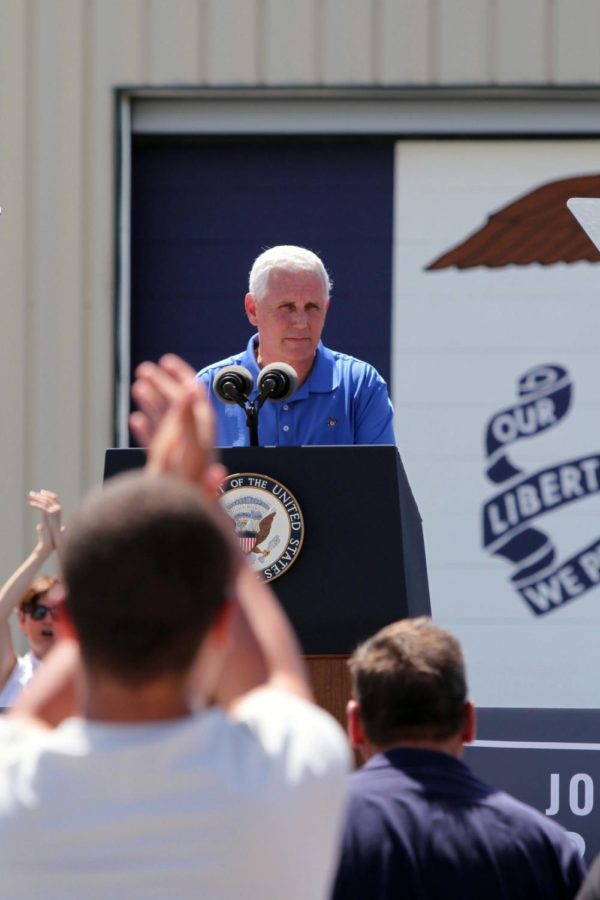Vice-presidential candidates will take the debate stage Wednesday
October 6, 2020
The vice-presidential debate will be Oct. 7 in Salt Lake City, Utah. Along with 5 more feet of separation and a plexiglass divider, this will be the first and only time Vice President Mike Pence and Democratic Vice Presidential nominee Kamala Harris will meet on the debate stage.
Moderated by USA Today’s Susan Page, the topics the debate will touch on is unclear; however, Page will choose nine for the candidates to speak on.
There are a plethora of topics Page could ask about, including what the first presidential debate touched on as well as the recent news of President Donald Trump being diagnosed with COVID-19. Mack Shelley, professor and chair of the political science department, pointed out some potential issues each candidate will look to elaborate on.
Shelley said Pence will likely touch on issues such as support for religion-based interpretations of the Constitution, support for gun rights, opposition to abortion, support for law and order and playing up what he will claim is a strong economic performance under the current administration.
Harris, on the other hand, is likely to focus on threats to health care and to abortion rights, and she will express strong support for equality and social justice but opposition to violence, Shelley said.
According to Louisiana Republican House Representative Mike Johnson, vice-presidential debates have played a secondary role to the presidential debates and have not had any sway in determining the result of the election, but in 2020, this debate will take on a different theme.
“I’ve made the point to people over the past several days that this is the first time in history where there has been such a deep divide between the two parties and their different visions for the country,” Johnson said. “They have very different policy prescriptions, ideas and plans, and I think the American people need to know about that. We count on having an informed electorate to run a constitutional republic, and this debate could really be something that helps us in that regard.”
South Carolina Democrat House Representative Jim Clyburn added that both candidates must be wary of the “gotcha moments.”
“I don’t think the debates as debates will make a whole lot of difference, but I think that certain things that come up in the debates could very develop into a 10- or 15-second sound bite that could be determinative for one candidate or the other,” Clyburn said. “On substance, I don’t think the debate means a whole lot, but for ‘gotcha’ moments, it could be determinative.”
While the debate is vital to each party’s chances of winning the election, Shelley mentions that the debate extends well beyond this election.
“Usually a sideshow to the main bout between the presidential contenders, the ages of the presidential candidates and the raging global pandemic that has killed about 210,000 Americans so far and infected about 7.5 million in this country alone, the performance of the vice-presidential nominees takes on extra importance,” Shelley said. “The audience is going to be taking the measure of Harris and Pence as likely successors to Trump or Biden as president.”

















